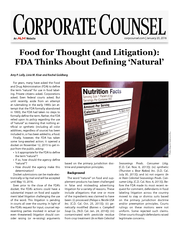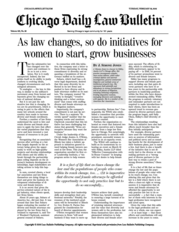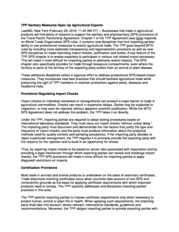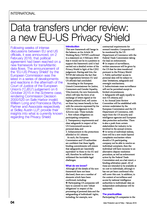Description
To close, Iain Sandford highlighted several points relevant to the manner
in which state-owned enterprises (SOEs) have become an increasingly
prominent feature in dispute settlement in the last 20 years. He argued that,
in recent years, Members have increasingly used trade remedy measures
to address alleged distortions caused by SOEs, for instance, through use
of normal value cost adjustments in dumping cases or when identifying
subsidies. Discussion among the panelists highlighted that new trade
agreements, notably the TPP adopted specific, WTO-plus rules for SOEs.
There was some debate about whether specific rules for SOEs were necessary
or appropriate. It was notable, nevertheless, that disputes arising from
WTO-plus SOE rules in TPP would inevitably be litigated under the TPP
dispute settlement framework.
The panel highlighted that issues pertaining to SOEs are not limited to emerging economies, but also impact “older” WTO Members, which is especially important to consider in the regulation of energy markets. Jan Yves Remy wrapped up the discussion by returning to the theme of the session: blue skies or storm clouds ahead? The discussion showed that both sunscreen and umbrellas are required as Members continue to deal with new challenges from both outside and within the existing WTO dispute settlement system. This article has been prepared for informational purposes only and does not constitute legal advice. This information is not intended to create, and the receipt of it does not constitute, a lawyer-client relationship. Readers should not act upon this without seeking advice from professional advisers. The content therein does not reflect the views of the firm. Contacts CHRISTIAN A. LAU JAN YVES N.
REMY IAIN SANDFORD Associate Geneva +41 22 308 0033 clau@sidley.com Associate Geneva +41 22 308 0046 jremy@sidley.com Partner Geneva +41 22 308 0042 isandford@sidley.com sidley.com AMERICA • ASIA PACIFIC • EUROPE Attorney Advertising - For purposes of compliance with New York State Bar rules, our headquarters are Sidley Austin LLP, 787 Seventh Avenue, New York, NY 10019, 212 839 5300; One South Dearborn, Chicago, IL 60603, 312 853 7000; and 1501 K Street, N.W., Washington, D.C. 20005, 202 736 8000. Sidley and Sidley Austin refer to Sidley Austin LLP and affiliated partnerships as explained at www.sidley.com/disclaimer.
Prior results described herein do not guarantee a similar outcome. MN-3315-02/16 .
The panel highlighted that issues pertaining to SOEs are not limited to emerging economies, but also impact “older” WTO Members, which is especially important to consider in the regulation of energy markets. Jan Yves Remy wrapped up the discussion by returning to the theme of the session: blue skies or storm clouds ahead? The discussion showed that both sunscreen and umbrellas are required as Members continue to deal with new challenges from both outside and within the existing WTO dispute settlement system. This article has been prepared for informational purposes only and does not constitute legal advice. This information is not intended to create, and the receipt of it does not constitute, a lawyer-client relationship. Readers should not act upon this without seeking advice from professional advisers. The content therein does not reflect the views of the firm. Contacts CHRISTIAN A. LAU JAN YVES N.
REMY IAIN SANDFORD Associate Geneva +41 22 308 0033 clau@sidley.com Associate Geneva +41 22 308 0046 jremy@sidley.com Partner Geneva +41 22 308 0042 isandford@sidley.com sidley.com AMERICA • ASIA PACIFIC • EUROPE Attorney Advertising - For purposes of compliance with New York State Bar rules, our headquarters are Sidley Austin LLP, 787 Seventh Avenue, New York, NY 10019, 212 839 5300; One South Dearborn, Chicago, IL 60603, 312 853 7000; and 1501 K Street, N.W., Washington, D.C. 20005, 202 736 8000. Sidley and Sidley Austin refer to Sidley Austin LLP and affiliated partnerships as explained at www.sidley.com/disclaimer.
Prior results described herein do not guarantee a similar outcome. MN-3315-02/16 .









